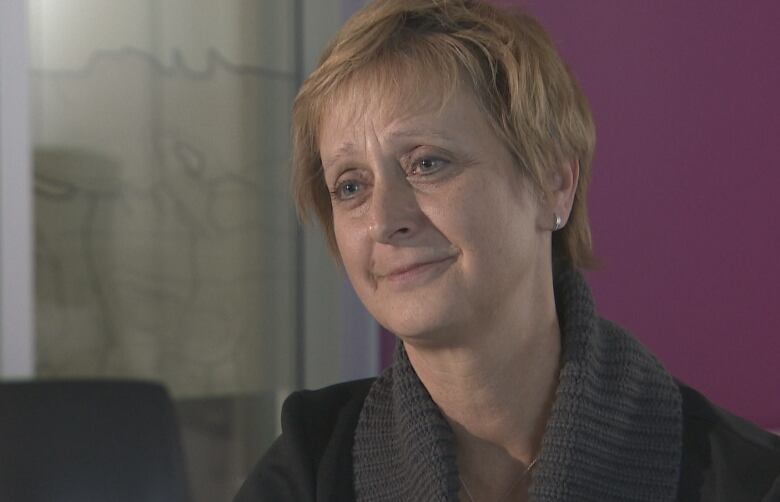Nova Scotia to hire bedsore specialists for long-term care
Program comes 3 years after Halifax woman died of bedsore complications

Nova Scotia is hiring specialized cliniciansto help with prevention and treatment of bedsores in long-term care.
Nova Scotia's Department of Health and Wellness says five clinicians will be hired one central co-ordinator, and one wound-care consultant foreach of the fourhealth zones toconsult on complex and challenging wounds.
They'll also provideeducation on prevention and management, and information on wound-care products.
The new program, jointly funded by the provincial and federal governments, will cost $675,000 for the first year and has an estimated ongoing annual cost of $660,000.
This comes three years after the issue of bedsores in long-term care came into the spotlight with the death of a 40-year-old woman who died of complications from an infected pressure ulcer.Chrissy Dunnington's death sparked a criminal investigation, and provincial tracking of bedsores.

The province began a pressure injury initiative to standardize practices in long-term care following Dunnington's death.
'It certainly gives us some peace'
Dorothy Dunnington said she's grateful that changes continue three years after her sister's death. She said lasting change when it comes to care for the most vulnerable is her sister's legacy.
"We're just really glad that Chrissy's story has made a difference for somebody else," Dunnington said Friday. "It really, I'm not gonna say it makes it all worthwhile, but it certainly gives us some peace to know that some changes are there and that nobody else should suffer the same way that Chrissy did."
But she added that while specialized staff and standardized practices are important, they don't necessarily mean the system is fixed.
"There were protocols in place when Chrissy fell ill ... that were not followed properly," she said. "So they also need to implement a way to ensure that the protocols they've put in place are actually being followed."
The health department said Friday that since Dunnington's death there have been education sessions held across the province, homes have received pressure-reduction mattresses and other equipment, and a pressure-injury toolkit on best practices was developed.

Health Minister Zach Churchill said in a news release the new program is an extension of the work that began in 2018.
Industry association welcomes the investment
Michele Lowe, executive director of the Nursing Homes of Nova Scotia Association, said her group was "very pleased" with the new program after having advocated for investment in injury prevention and wound education for many years.
"Long term care is a specialty," Lowe told CBC News via email. "We require the skills and knowledge of clinical experts who understand the importance of building capacity within the dedicated workforce who proudly work in our sector.
"Positioning an expert in each zone will result in timely access for nursing homes to manage the complex and serious wounds that can quickly arise when supporting our frail elders."
Lowe said other areas of expertise that still require investment include palliative care, dementia and frailty.












_(720p).jpg)


 OFFICIAL HD MUSIC VIDEO.jpg)
.jpg)



























































































